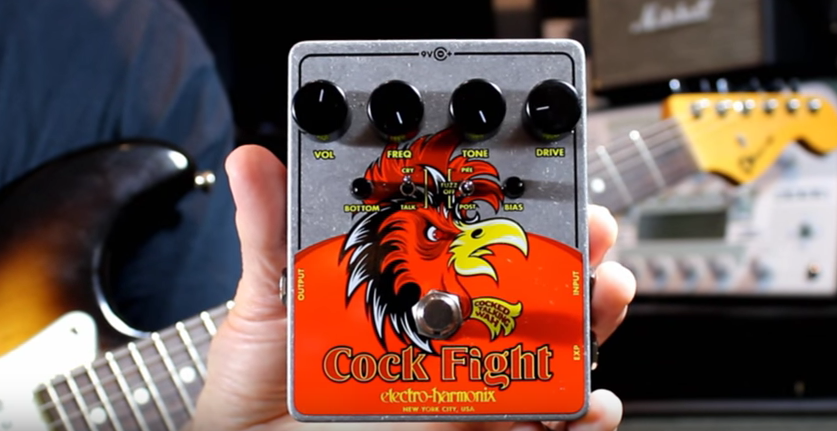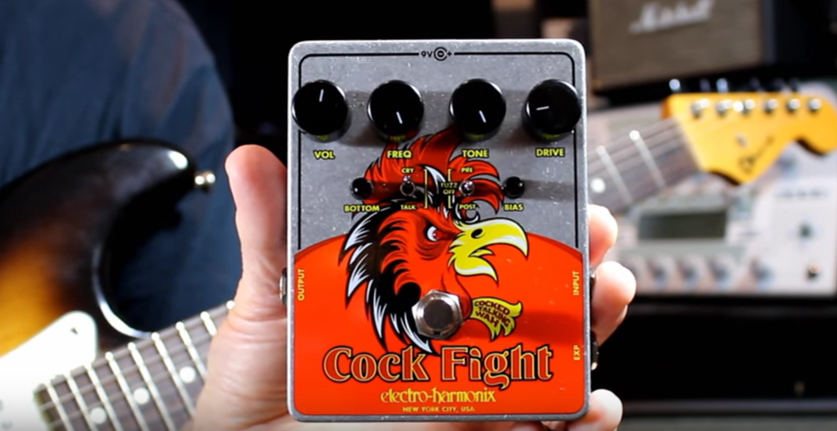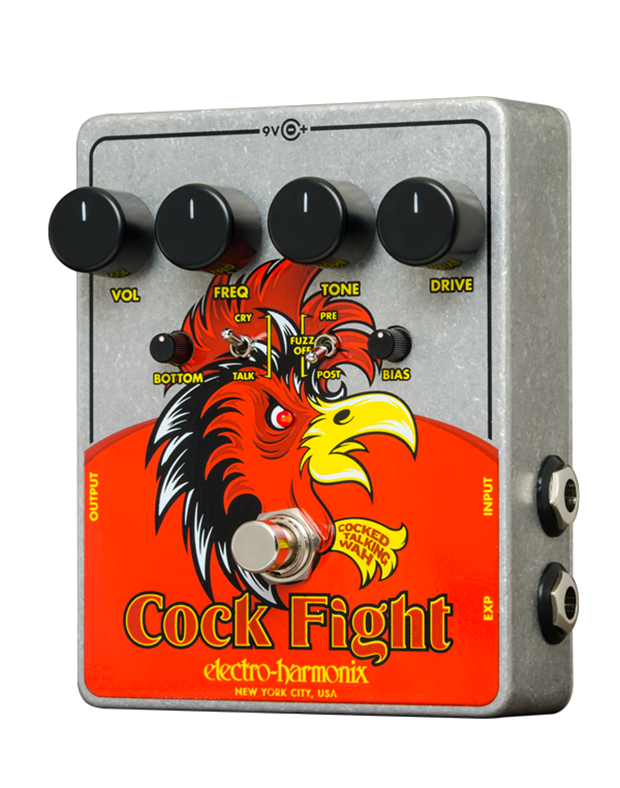Electro-Harmonix Introduces Cock Fight "Cocked Talking Wah"
All the latest guitar news, interviews, lessons, reviews, deals and more, direct to your inbox!
You are now subscribed
Your newsletter sign-up was successful

Electro-Harmonix has launched its new Cock Fight pedal. The Cock Fight features two expressive filters with tunable frequencies to produce classic cocked wah and cocked talking pedal sounds—sans the rocking wah pedal. A built-in fuzz can be added pre or post the filter section, or removed entirely from the circuit. The Tone knob adjusts between a darker and brighter fuzz while the Bias knob takes the fuzz from “normal” to a “dying battery” sound. With its EXP input, the player can use an expression pedal to control and sweep the wah and talking pedal filters in real time for an array of especially expressive sounds. “Some of rock’s most iconic guitar riffs have been created using a cocked wah sound, but that required finding the sweet spot on a wah pedal’s sweep," says Mike Matthews EHX president and founder. "Our new Cock Fight lets a player dial in all those great tones and is like getting a stuck wah, stuck talking pedal, expression-pedal controlled wah and talking pedals, plus variable fuzz in one device.” The Cock Fight comes equipped with a standard EHX 9.6DC-200mA PSU and is shipping now with a suggested U.S. MSRP of $148.90. For more information about the Cock Fight, visit its page on ehx.com.


All the latest guitar news, interviews, lessons, reviews, deals and more, direct to your inbox!
Since 1980, Guitar World has been the ultimate resource for guitarists. Whether you want to learn the techniques employed by your guitar heroes, read about their latest projects or simply need to know which guitar is the right one to buy, Guitar World is the place to look.

